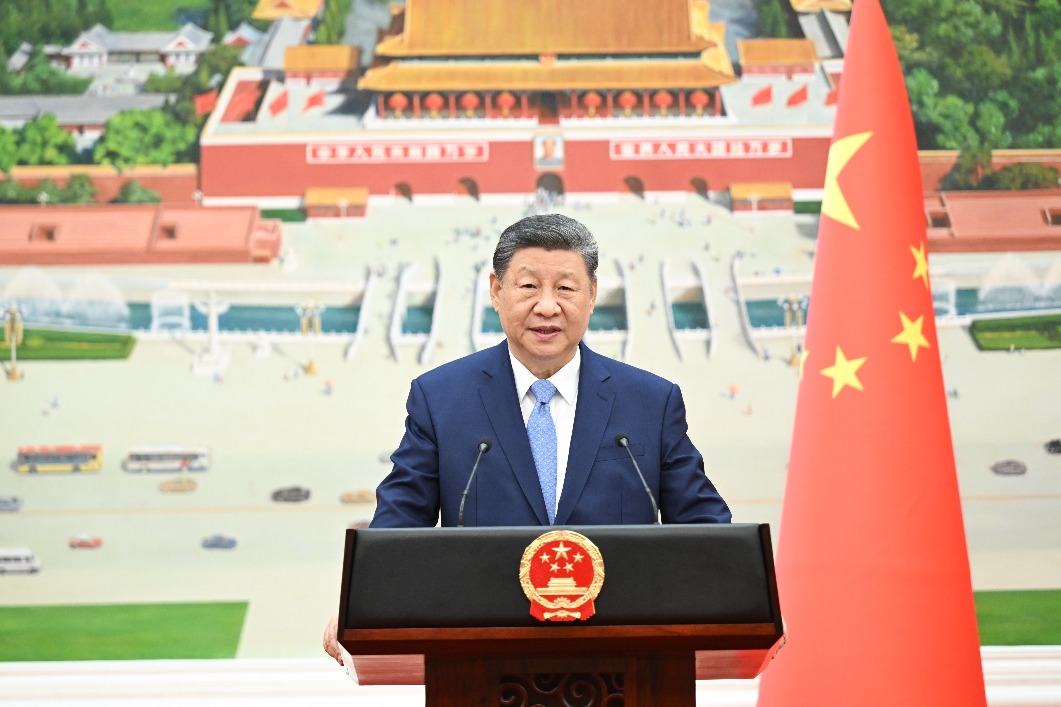Europe struggles for unity to fund recovery
Breakthrough sought at EU meeting on stimulus that splits states on formula

BRUSSELS/FRANKFURT, Germany-European Union member states have struggled to resolve differences over a massive recovery plan for their coronavirus-hit economies, but agreed a deal is crucial at an end-of-week summit for the bloc's credibility.
With economies in freefall due to the pandemic, European leaders will hold their first face-to-face meeting since lockdowns took hold from March and there were weeks of feuding over how the 27-nation bloc should respond.
At stake in the two-day conference starting on Friday in Brussels is the EU's next long-term budget and an economic stimulus plan that, together, would be worth around 1.85 billion euros ($2.1 billion).
To reach an accord, many gaps will need to be bridged, especially between wealthy, thrifty northern countries and the high-debt south that has borne the brunt of the health crisis.
"A great deal is at stake, the credibility of the European Union is at stake," Germany's Minister of State for Europe Michael Roth said after a meeting with EU counterparts.
"We have reached a consensus that we need a quick agreement ... I won't bet on it, but I am optimistic we have a good chance of a breakthrough," he told a news conference.
He said there were still many areas of disagreement, particularly over the overall size of a recovery fund-which the summit's chair has proposed be set at 750 billion euros-and the question of whether it is disbursed as free grants or loans.
European Council President Charles Michel has called on European leaders to agree on the massive plan to relaunch the bloc's economy.
"Now is the time. A deal is essential," he said on Wednesday in a letter to the 27 leaders of the EU member states.
"We will need to find workable solutions and come to an agreement, for the greater benefit of our citizens. Finding agreement will require hard work and political will on the part of all."
'Frugals' club
A club of frugal states-Austria, the Netherlands, Denmark and Finland-strongly prefers loans to help their peers but avoid bankrolling those they see as fiscally reckless.
Leaders of the bloc have held a flurry of one-on-one meetings ahead of the conference to persuade the "frugals" to drop opposition to splitting the fund into two-thirds grants and one-third repayable loans.
Crucially, the fund has the backing of German Chancellor Angela Merkel, whose own government has ditched its no-new-debt dogma to unleash 130 billion euros in fiscal stimulus for Europe's top economy.
"We'll be heading to Brussels with some stock of openness to compromise on the German side," Merkel said on Tuesday.
Spanish Prime Minister Pedro Sanchez said he saw "very difficult hours ahead" as he visited Swedish counterpart Stefan Lof-ven for talks on Wednesday.
"We have different views on the answer to the crisis, but we share a common goal," he told a news conference at the Swedish government's countryside residence Harpsund. "If we delay the response, we delay the recovery and the crisis could get worse. We all have to make some sacrifices to reach an agreement."
The COVID-19 pandemic is the latest big challenge for the EU after a debt crisis a decade ago, mass immigration over the past decade and the trauma of Brexit. Some have even framed it as an existential dilemma, as euroskeptic feeling grows in countries such as Italy.
On Thursday, European Central Bank governors are expected to refrain from doling out fresh stimulus medicine, hoping EU leaders will do their bit to shore up the crisis-hit region with the massive recovery plan.
The ECB has taken unprecedented action to cushion the economic blow from the pandemic, which has left the eurozone facing its worst downturn since World War II.
But ECB chief Christine Lagarde hinted last week that the governing council would take a breather to gauge the effectiveness of its measures so far.
"We have done so much that we have quite a bit of time to assess (the latest data) carefully," she told the Financial Times.
The ECB's next economic growth and inflation forecasts are due in September and policymakers will probably wait until then before deciding on further action, observers say.
Agencies - Xinhua
Today's Top News
- China sees over 33.7 billion inter-regional trips in H1
- BRICS justifiably calls for IMF reforms
- Xi receives credentials of new ambassadors to China
- Sino-US trade talks key to global supply chain
- Medical insurance covers 95% citizens
- Great opportunities mark 50th anniversary






























